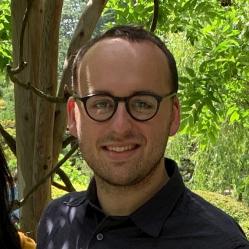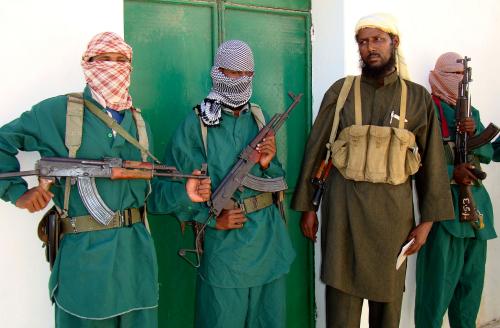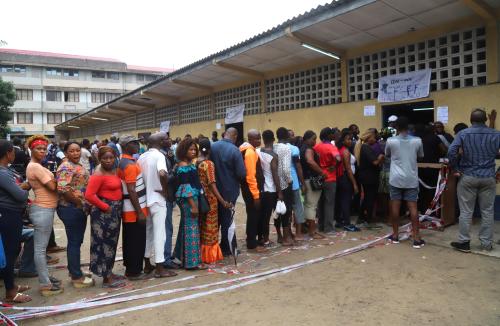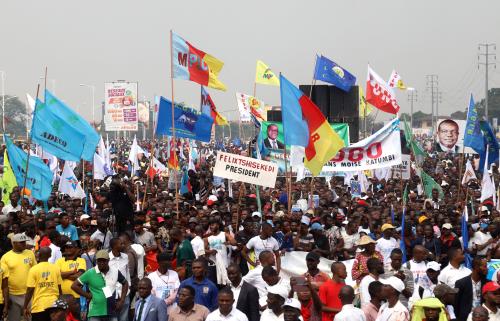On January 9, the government of the Democratic Republic of the Congo (DRC) announced the results of the country’s long-awaited December 30 national election. To the surprise of virtually everyone, opposition leader Felix Tshisekedi was declared winner with 36.6 percent of the vote, while Emmanuel Ramazani Shadary—the candidate of President Joseph Kabila’s Common Front for Congo (FCC)—came in third place with 23.8 percent. (In second place was Martin Fayulu, with 34.8 percent.) Despite losing the presidency, the FCC won a supermajority in the parliament and the senate, leading to speculation that the results were the product of a deal between Kabila and the opposition. With many questions about the legitimacy of these elections, the DRC’s future is more uncertain than ever.
To assess the DRC’s elections, Michael O’Hanlon—Director of the Africa Security Initiative at Brookings—led a two-part panel discussion on February 1.
The first panel was comprised of O’Hanlon, lecturer at the Johns Hopkins School of Advanced International Studies (SAIS) Mvemba Dizolele, congressional counsel Laura Kupe, consultant Mulala Nguramo, and former U.S. Special Envoy for the African Great Lakes and Congo-Kinshasa Tom Perriello.
O’Hanlon opened by asking the panelists for their impressions of the election and implications going forward. Kupe said the election and its irregularities were a “missed opportunity” for the Congolese people and for the international community. In particular, the international community left the Congolese people behind, and she expressed eagerness to see how people in the diaspora can “think about the future going forward” to support people on the ground in the DRC.
Dizolele said that the election was “supposed to be a historical moment for the DRC,” but it ended up being “a moment of division.” He acknowledged international efforts to support the elections, but Congolese have been forced to reckon with the “cynicism of the international community” as it deals with the election’s irregular results. Nguramo expressed hope and optimism—namely that the election “expressed the desire of the people in the country to have democracy and freedom.” Nguramo hoped that “regardless of what happened, I see this momentum growing in the country.”
Finally, Perriello observed that “an enormous amount does rest on Felix Tshisekedi. Does he prove skeptics wrong…or is he in fact just someone who is going to continue Kabila both directly and indirectly?” Perriello stressed how “incredible” it was that a peaceful election took place across the country, because people “were so eager to express their opinion and start a new chapter.”
The second panel was comprised of Sascha Lezhnev of The Enough Project, Kristin McKie of St. Lawrence University, John Tomaszewski of the International Republican Institute, and again Dizolele.
Asked about their impressions of the election, all expressed relief it was not violent, if not fully democratic.
McKie noted that Tshisekedi has “a lot of room for maneuver symbolically” to shape the country’s dialogue going forward. However, institutionally he is very constrained, and Kabila will enjoy influence thanks to recent alterations to the country’s constitution. Lezhnev agreed with earlier panelists that the election was an important step, but he would not use the word “democratic” to describe them because of the manufactured nature of the results. He argued that “there need to be consequences for that” and that it is incumbent on the United States “to address the kleptocratic state that has taken over Congo for the last several decades.”
Tomaszewski noted that his organization, the International Republican Institute, was present on the ground in the DRC for the elections. He explained that he and others work with democratic actors in places like the DRC to “encourage them and try to help them either through strengthening institutions, working within civil society, or helping candidates try to compete in what is often a lopsided political landscape.” Discussing the results of the election, Tomaszewski concluded that “it’s very hard to enact reforms. Tshisekedi has promised a great deal of things to the Congolese people…but he has a very, very steep hill to climb.”
Considering what U.S. policy toward the DRC should be, Tomaszewski said calling these elections “democratic” was not helpful because of the standard it solidifies in the region. But now the United States has to support Tshisekedi and help the Congolese build up robust, independent institutions. Other panelists agreed there is hope in supporting Tshisekedi despite the election’s democratic deficit. Finally, Dizolele said that there is room for both the United States and the European Union to help restructure the military and build up solid, independent institutions in the country. O’Hanlon raised the idea of a security force assistance brigade within the broader overall U.N. mission that could assist Congolese in conducting their operations effective through mentoring, advice, and training. He stressed that these units would not be combat units per se.




Commentary
What did elections in the Democratic Republic of the Congo mean? Experts discuss
February 7, 2019